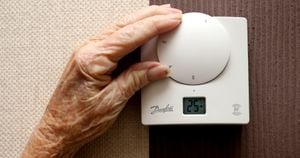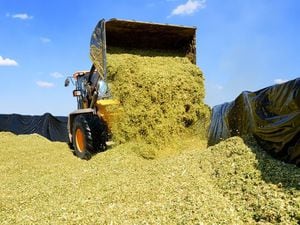21,000 Shropshire homes stuck in fuel poverty
More than 21,000 Shropshire households are struggling to keep warm during the colder months, new figures show.

Oil & Renewable Heating Technologies (OFTEC) said the latest figures for 2015 reveal that 16 per cent of homes in Shropshire are classed as fuel poor – a total of 21,139 households.
This means these households cannot afford to keep adequately warm at a reasonable cost given their income, with the national figure increasing to just over 2.5 million.
OFTEC said fuel poverty levels are also higher in rural parts of the UK compared to urban areas, with these rural households on average experiencing a £700 gap between the cost of their fuel bills and what they can actually afford to pay.
In response, OFTEC, which represents the oil heating industry, has written to MPs in Shropshire urging them to take immediate action to provide support before the cold weather returns this year.
Malcolm Farrow, from OFTEC, said: “It is shocking that once again we are seeing an increase in levels of fuel poverty with more and more people unable to afford the most basic need of keeping warm.
"We are also seeing a growing divide between rural and urban households and it is disappointing so little progress has been made to address this crucial issue.
“On average rural households, such as in Shropshire, are 10 times more likely to have the lowest efficiency rating compared to urban homes.
"Our research shows these homes can save over £200 a year by upgrading to a modern, high efficiency boiler.
“That’s why we are calling on local MPs and the government to support those who are most vulnerable by introducing a boiler replacement scheme to help households upgrade and benefit from cheaper fuel bills.
“It is a prime time to introduce such a scheme as households on heating oil continue to benefit from low prices and could potentially put some of their extra savings towards the cost.
“However, we recognise that for some people already in fuel poverty it will be difficult to afford the upgrade, even with financial assistance.
“Fortunately, there are other low cost ways these households can reduce their heating costs such as regularly adjusting heating timers, bleeding radiators, improving insulation, purchasing oil over the summer when it is typically cheaper and having their heating system regularly serviced by a qualified technician to ensure it is working efficiently.”





